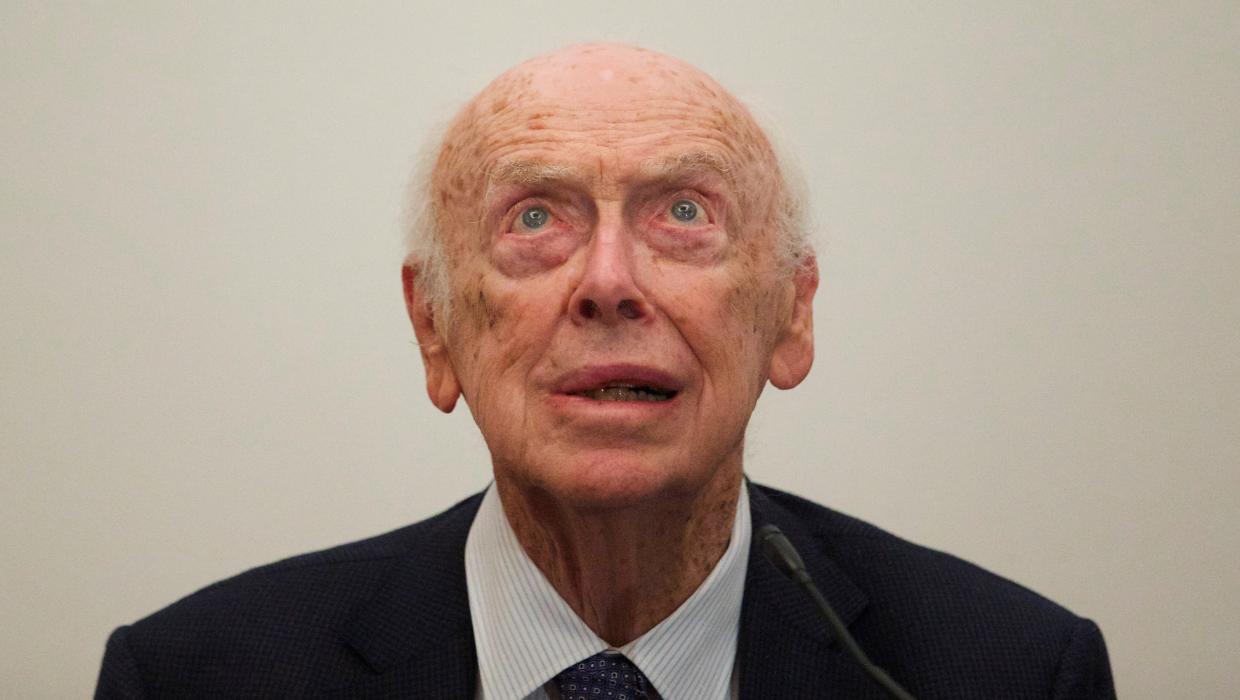Science
Renowned Scientist James Watson Passes Away at Age 95

Renowned scientist James Watson, best known for co-discovering the double-helix structure of DNA, passed away at the age of 95 on March 28, 2023. His groundbreaking work in 1953, alongside Francis Crick, revolutionized the field of genetics and earned them the Nobel Prize in Physiology or Medicine in 1962. Despite his significant contributions to science, Watson’s later years were marred by controversy due to his inflammatory remarks on race and intelligence.
Watson’s journey in science began early. At just 24, he played a pivotal role in deciphering the molecular structure of DNA while working at the Cambridge University in the UK. This discovery laid the groundwork for modern genetics, influencing countless fields, including medicine, biotechnology, and forensic science. His work at the Cold Spring Harbor Laboratory in New York further solidified his status as a leading figure in biological research.
Despite his scientific achievements, Watson faced significant backlash in the early 21st century for comments that many deemed racist and sexist. These statements led to professional censure and tarnished his legacy, prompting various institutions to distance themselves from him. In 2019, his honorary titles and affiliations were revoked by several organizations, including the Cold Spring Harbor Laboratory, which he had led for decades.
The scientific community has expressed mixed feelings regarding Watson’s passing. Many acknowledge his monumental contributions to genetics while grappling with the implications of his controversial views. David Baltimore, a Nobel laureate and former president of the California Institute of Technology, remarked, “James was a brilliant scientist, but his later statements overshadowed his scientific legacy.”
Watson’s death marks the end of an era in molecular biology. His work catalyzed advancements in genetic research, including the Human Genome Project, which mapped the entirety of human DNA. The implications of his discoveries continue to impact medicine, agriculture, and anthropology.
Despite the controversies, Watson’s influence in shaping our understanding of genetics is undeniable. His work has paved the way for significant breakthroughs in genetic engineering, gene therapy, and personalized medicine. As the scientific community reflects on his life, it remains essential to balance recognition of his achievements with a critical analysis of his later views.
In summary, James Watson leaves behind a complex legacy. He will be remembered not only for his role in uncovering the secrets of life but also for the ethical discussions his later remarks incited within the scientific community. As the world mourns his passing, it also contemplates the lessons learned from his life and work.
-

 Sports2 months ago
Sports2 months agoNetball New Zealand Stands Down Dame Noeline Taurua for Series
-

 Entertainment2 months ago
Entertainment2 months agoTributes Pour In for Lachlan Rofe, Reality Star, Dead at 47
-

 Entertainment4 weeks ago
Entertainment4 weeks agoNew ‘Maverick’ Chaser Joins Beat the Chasers Season Finale
-

 Sports7 days ago
Sports7 days agoEli Katoa Rushed to Hospital After Sideline Incident During Match
-

 Sports2 months ago
Sports2 months agoSilver Ferns Legend Laura Langman Criticizes Team’s Attitude
-

 Politics1 month ago
Politics1 month agoNetball NZ Calls for Respect Amid Dame Taurua’s Standoff
-

 Entertainment2 months ago
Entertainment2 months agoKhloe Kardashian Embraces Innovative Stem Cell Therapy in Mexico
-

 Sports5 days ago
Sports5 days agoJamie Melham Triumphs Over Husband Ben in Melbourne Cup Victory
-

 World3 months ago
World3 months agoPolice Arrest Multiple Individuals During Funeral for Zain Taikato-Fox
-

 Sports3 months ago
Sports3 months agoGaël Monfils Set to Defend ASB Classic Title in January 2026
-

 Entertainment1 month ago
Entertainment1 month agoTyson Fury’s Daughter Venezuela Gets Engaged at Birthday Bash
-

 Sports1 month ago
Sports1 month agoHeather McMahan Steps Down as Ryder Cup Host After Controversy




















